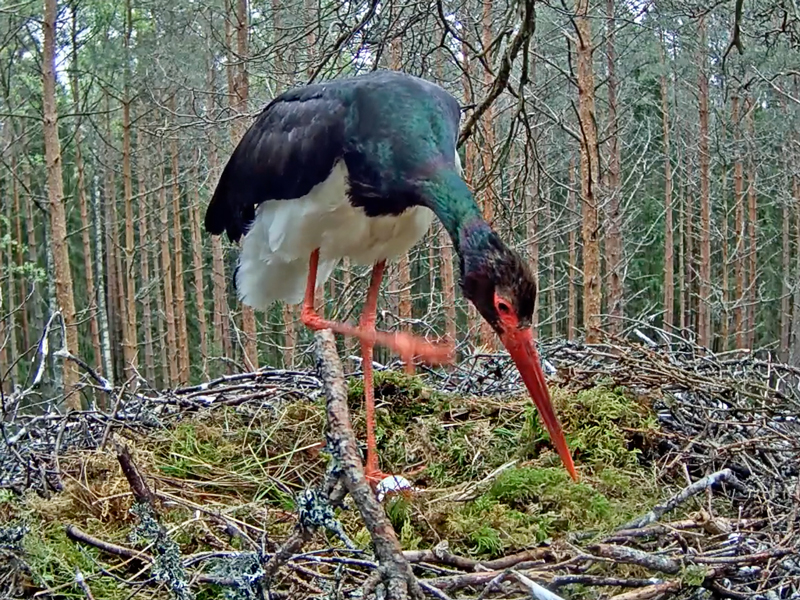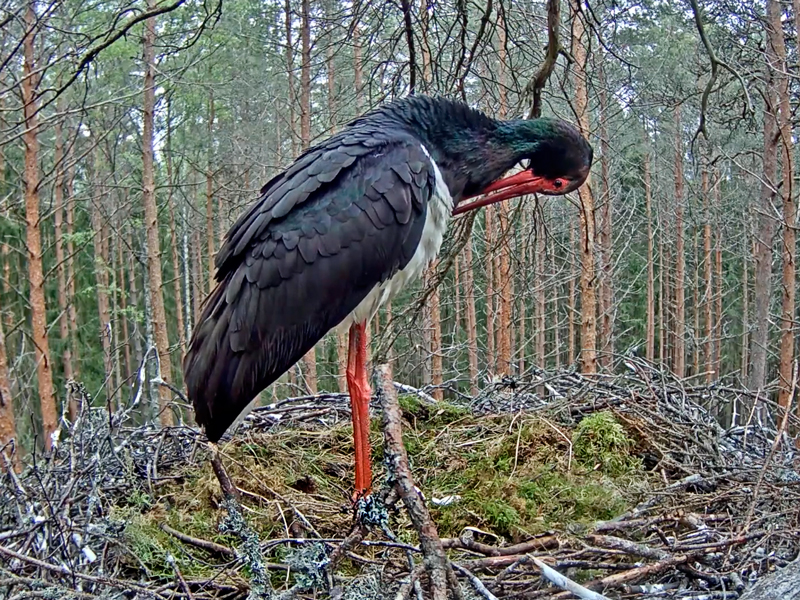I made short video of Karl II lovely nest work this morning
I still watch and read the forum, just not posting that much
Thank you all for your endless reports, pictures and comments
In anticipation of the first hatching )))
Crissy, thank you for the video! Karl II is a real joy to observe.





Anne,Anne7 wrote: May 14th, 2019, 12:01 pm ....The eggs are well hidden. It will be hard to see the first cracks.
Liz01 wrote: May 14th, 2019, 12:08 pm Anne,Yes, Karl II is very active . he knows, that it getting serious :laugh :
We will hear the little one, before there is a crackquack quack.. like an frog or duckling.
Yes, Kati heard something.



Liz, I think intensive breeding started after the second egg was laid.Liz01 wrote: May 14th, 2019, 2:39 pm Anne, when did they start breeding? Right at the first egg or from the second egg. Do you know it ?I'll go back to this time.
Than you Anne. I saw it right now..Anne7 wrote: May 14th, 2019, 2:43 pm Liz, I think intensive breeding started after the second egg was laid.
Until then, the first egg was not permanently covered. In the evening, Kati and Karl II sometimes stood upright next to the egg, for a while.
Yes, we will have to wait and see.Liz01 wrote: May 14th, 2019, 2:47 pm Thank you Anne. I saw it right now..
30 days after they start breeding. We will know it soon.
Anne7 wrote: May 14th, 2019, 12:55 pmIn 2016 the 1st egg was laid on 12.04 and hatched the night of (16-17).05 (after 34-35 days) In 2017 the 1st egg was laid on 17.04 and hatched the night of (19-20).05 (after 32-33 days) In 2018 the 1st egg was laid on 16.04 and hatched on 18.05 (after 32 days) This year, 2019, the first egg was laid on 12.04 (Today is 32 days later, the average of previous years is 33 days)
new male (another genes) ...It takes 32 to 38 days for black stork eggs to hatch.
Hello, SoloSolo wrote: May 14th, 2019, 3:23 pm new male (another genes) ...It takes 32 to 38 days for black stork eggs to hatch.
yes, we will see soon



no, I know only few (6) BS nest with stream and I haven't hatch statisticsAnne7 wrote: May 14th, 2019, 4:06 pmHello, SoloHave you seen BS nests where the first egg only hatched after 37 or 38 days?

that will be very nice, but it is very unusually to see that allAnne7 wrote: May 14th, 2019, 12:44 pm...But I really hope we can also see the whole process.
The first pip, the cracks, the birth....
I think that is meant that (normally) 32-38 days after the start, the complete clutch hatched.Solo wrote: May 14th, 2019, 4:27 pm no, I know only few (6) BS nest with stream and I haven't hatch statistics
6 day scatter for BS: 32-38 (and WS: 28-34) is in scientific papers
Yes, I have seen that.Solo wrote: May 14th, 2019, 4:41 pm that will be very nice, but it is very unusually to see that all
previous year we had this great opportunity on HU, Gemenc-Keselyűs nest (video: https://youtu.be/Hmyz0ndhkA8)